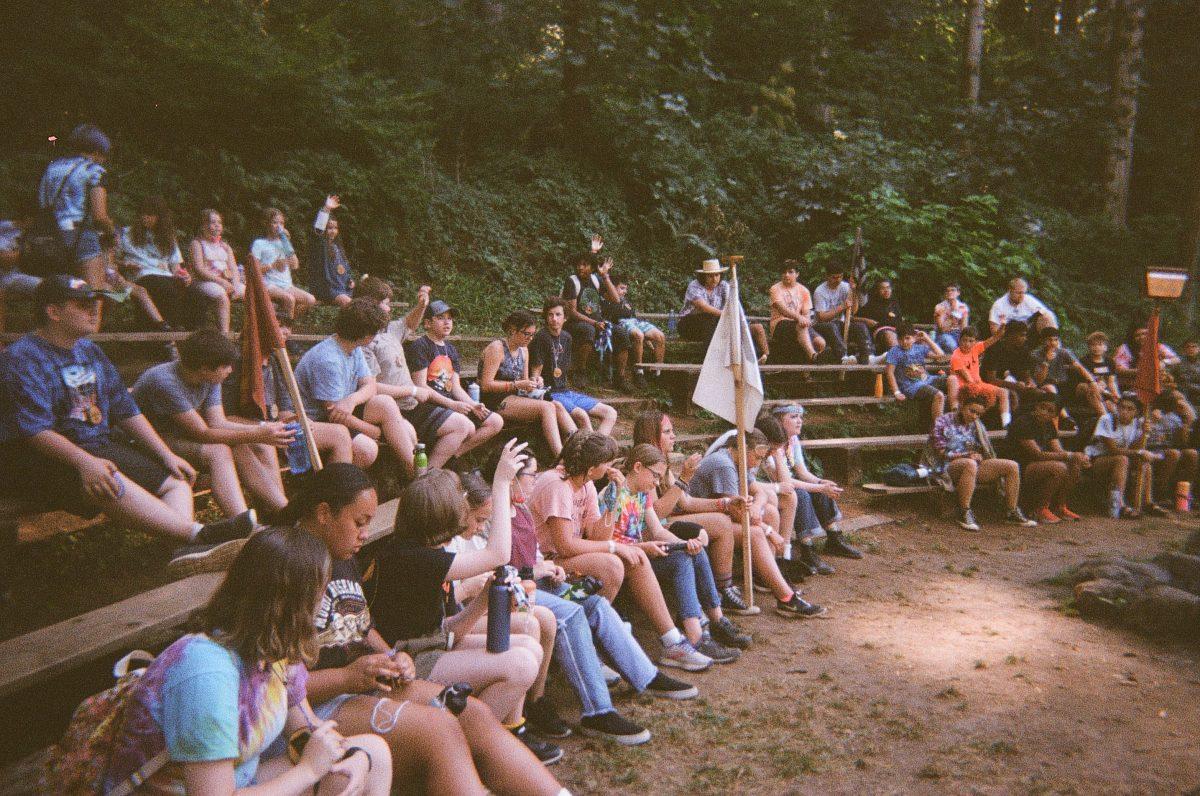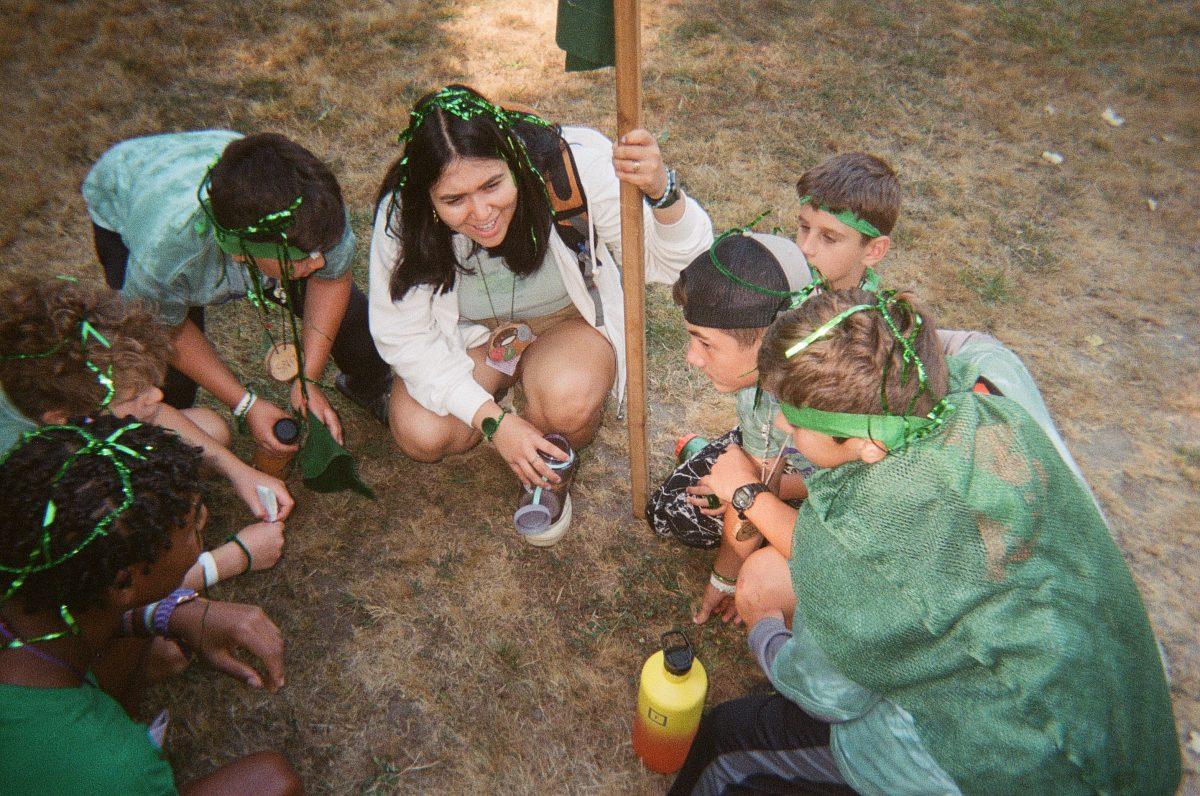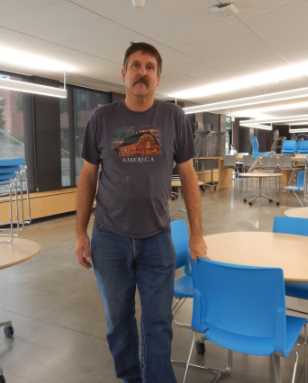*Sensitive Content Warning: Mental illness, domestic maltreatment and suicide.*
In 2004, a nonprofit took on a national crisis.
In response to growing concerns about the negative effects of the Global War on Terrorism on military children, the National Military Family Association (NMFA), an advocacy nonprofit for military families, created Operation Purple Camp (OPC), a free, week-long sleepaway summer camp to support military children through the stresses of having a parent in the armed forces.
The United States had launched Operation Iraqi Freedom (OIF) the year prior; Operation Enduring Freedom (OEF) had already been underway in Afghanistan for three years. (Operation Iraqi Freedom and Operation Enduring Freedom were the official code names for the U.S. military’s invasions of Iraq and Afghanistan following the terrorist attacks of Sept. 11, 2001.)
According to a 2009 report from the Congressional Research Service, 145,800 troops were deployed in both OIF and OEF in 2004. By 2008, that number had soared to 187,900. According to the RAND Corporation, 67% of active-duty Army soldiers had deployed to Iraq or Afghanistan by 2008, most of them for a second or third year, and some for a fourth.
In addition to the physical dangers, the emotional and psychological toll of the war on terror on U.S. military personnel was, and is, staggering. According to a 2017 paper by Shelley MacDermid Wadsworth, Keisha M. Bailey and Elizabeth C. Coppola, “Since 2001, more than 50,000 American service members have been physically wounded, more than 6,500 have died, and as many as 400,000 have incurred so-called invisible injuries, including traumatic brain injuries, posttraumatic stress disorder, depression, and anxiety.”
A 2019 study by the Journal of the American Medical Association Network found that suicide rates among active-duty personnel began increasing substantially in 2004. In 2008, the rate passed 20 per 100,000 personnel for the first time since 1940. This number continued to rise until 2017, when the study’s data ended.
According to the Department of Defense’s (DoD) annual demographics report, 38.8% of military personnel had at least one child in 2018 — about one in 42 of all American children, according to MacDermid Wadsworth, Bailey and Coppola. As OEF and OIF drew hundreds of thousands of soldiers into the Middle East, these children suffered, and continue to — even as the wars have puttered to a bloody stop.
“Military families have demonstrated that they are resilient,” says MacDermid Wadsworth, the director of the Military Family Research Institute, a distinguished professor in the Department of Human Development and Family Science and director emerita of the Center for Families at Purdue University in Indiana. “A minority struggle with longer-term sorts of things … At the beginning of the conflict we didn’t necessarily expect that. We thought that there could be really serious negative consequences, maybe, with having a parent deployed for a long time to combat.”
MacDermid Wadsworth, Bailey and Coppola’s study, which analyzed data from 2008–2013, found that military children — regardless of age, grade or minority or socioeconomic status — struggled in a variety of ways when compared to their civilian counterparts. Military children whose parents had experienced deployment struggled even more.
The study found that children exposed to deployment brought a knife or gun to school at rates 80% higher than civilian children and about double the rate of military children whose parents had not been deployed. Among children exposed to deployment, rates of suicidal thoughts were 34% higher, about four times the rate of their peers who had been exposed only to military service.
“The initial evidence suggests that those early effects don’t persist for really long periods of time, that it’s a temporary perturbation, maybe,” says MacDermid Wadsworth.
In 2015, Elizabeth Hisle-Gorman and five colleagues published a retrospective study that analyzed medical-record data from 487,460 military children ages 3 to 8 in 2006 and 2007. The study found that children whose parents were deployed had more post-deployment medical visits for mental health, injury and child maltreatment compared to children whose parents did not experience deployment. Visits in all three categories increased for children whose parents were injured in combat.
“This study suggests that deployment-related mental health issues for young children continue and may be exacerbated after a parent’s return, especially if the parent experiences a combat injury,” wrote the researchers.
Studies conducted in schools, which gather data from both civilian and military children and do not ask when kids’ exposure to deployment took place, have found elevations in a variety of risks for military children, like those cited above. “That’s a little troubling because it suggests that these effects might last a while or they might accumulate over time,” says MacDermid Wadsworth.
Three years into the war on terror, the crisis was clear. As more U.S. military personnel were deployed to wars in the Middle East, more children were thrown into dangerous patterns of risky behavior, mental illness and domestic violence.
To combat this, the NMFA created OPC in 2004. For two decades, OPC has worked to address military children’s increased stress levels during wartime through “building support networks, physical exercise and targeted learning,” according to a 2014 article by Theresa Buchanan of the NMFA.
According to the NMFA’s website, as of late July 2023, nearly 70,000 children have attended OPC in-person since its launch, and more than 3,500 attended virtually during the COVID-19 pandemic.
In 2017, Operation Purple Camp Oregon’s Facebook announced that the program would become Oregon Summer Star (OSS), a continuation of OPC but operated by the Tsuga Community Commission instead of the NMFA.
OPC is a vital resource for military children who often find themselves emotionally alienated from the vast majority of their peers, who have not experienced the constant stress and fear that a loved one may be deployed at any moment, or if they are deployed, that they may be injured or never return home.
A study currently in development by MacDermid Wadsworth and her colleagues looks at the long-term effects of military children who experienced lengthy deployments early in childhood. “(These children’s) first exposure was long ago, during a period in human development where they are learning. They’re laying down the foundation of their understanding of relationships. They’re developing what’s called their attachment models,” says MacDermid Wadsworth. “They’re learning how relationships operate, and that becomes the template for later relationships. And so a lengthy separation from a parent at that time is potentially disruptive — but also potentially helpful in promoting closeness with the at-home parent.”
Hisle-Gorman and her colleagues’ study found that young children of combat-injured parents also had more medical visits for adjustment, anxiety, development and mood disorders than their older peers. The findings indicate possible broader mental health issues in children who experience parental deployment or combat injury early in life.
In 2015, Hisle-Gorman and her colleagues wrote, “Increased preventive and intervention services are needed for young children as parents return from deployments.” Two years later, MacDermid Wadsworth, Bailey and Coppola wrote, “Neither the U.S. Department of Defense nor the U.S. Department of Veterans Affairs has mechanisms to regularly monitor the developmental status or well-being of children whose parents serve or have served in the military.”
“(That’s) no longer quite true,” says MacDermid Wadsworth, noting the Millennium Cohort Study, a DoD research project that has been determining how military experience affects the long-term health of service members since 2001 and which recently began gathering data on military spouses and kids.
However, Anita Chandra, the vice president and director of RAND Social and Economic Well-Being and a senior policy researcher at the corporation, says, “We don’t have a lot of federal support (for) children and youth issues in a coordinated way … There are federal programs that support some youth initiatives, but probably not nearly enough.”
If the federal government were to establish more permanent departments or initiatives to serve children, safety nets would already be in place to deal with unforeseen catastrophes — like a war, natural disasters or a pandemic. “We would be better able to support kids,” says Chandra, “and we just haven’t.”
For children — especially young children — with a deployed parent, OPC can provide an important, caring community during a time when building positive relationships is vital. This support is especially crucial when one of the most essential relationships for a child to build — that with a parent — is missing.
“I do think that there is good evidence that camp programs can be important for children, not just military children, but all children,” says MacDermid Wadsworth, whose institute ran the first OPC program on a university campus. “We felt it was really important for kids to have opportunities to be with other kids who share their experience, who understood what it’s like to have a military parent, to go through a parent’s deployment, to worry about their parents. And we also thought it was a great opportunity to provide support to kids in case they’ve had traumatic experiences.”
In 2011 and 2012, RAND conducted two studies evaluating how OPC helped youth learn about and connect with military culture, as well as cope with the stress of deployment.
“By and large, the camps really did meet their intended goals in terms of creating connection and fostering connection amongst military kids,” says Chandra.
The 2011 study found that, compared to the national averages of youth, those who attended OPC in 2008 experienced higher rates of emotional or behavioral difficulties and anxiety. However, those struggles decreased in the year after attending OPC. The study also found that youth in the study improved their peer functioning and academic engagement, which were comparable to the national averages at the beginning of the study.
The 2012 study assessed if campers improved in OPC’s four main outcome areas when compared to youth who did not attend camp: communication and trust-building skills, stewardship of self and military community, military culture understanding and outdoor education. It found that campers had some improvements compared to non-campers in the outcome areas, but found more significant improvements in secondary areas like higher confidence, independence and coping skills. The break from military life also had a positive impact.
“We learned a lot about the resilience of kids and families and what helps create that resilience,” says Chandra. “We take a lot of lessons about trauma and mental health and resilience from military populations, and then we apply it to civilian populations.”
She continues: “What we learned about resilient kids we apply to, now, civilian populations … And so the military family work really creates an opportunity to improve programs for everybody.”
For the week of OPC, children who, for a majority of the year, receive relatively sparse support for a uniquely challenging and inescapable aspect of their lives find themselves surrounded by people their age who understand what they are going through. At OSS, staff undergo trauma-informed care training before camp to better serve campers’ unique needs and stresses.
Kayana Fillmore first found OSS when she was eight years old. After being a camper for five years, and a counselor for three, she has now been on senior staff for half a decade. “I really wanted to … learn how to support the campers in the same way that staff supported me when I was a kid and find a way to just give back to the community and help keep the program running,” she says. “I just want all the kids growing up now with military families to have what I had growing up.”
Like all sleepaway summer camps, OPC can provide child care at a time when the country is sorely in need. “Most of the child care we have is purely low quality, and the pandemic really hurt the child care industry,” says MacDermid Wadsworth. “So we have a terrible child care problem in the country and that affects military people. And because they work odd shifts and long hours and they get called away, these are especially challenging circumstances for them.”

Other difficulties in raising children are exacerbated for military families. “The military has families who have children with exceptional needs. That’s another gap, trying to make sure that the parents can do their military jobs, but the kids can get the support that they need,” says MacDermid Wadsworth. “That’s also a problem in the country, but it affects military families acutely because they move around a lot.”
One of military families’ greatest obstacles in getting adequate care is their invisibility to the civilian population. “There are always more military-connected people around you than you know,” says MacDermid Wadsworth. Each service member has their own tree of loved ones: parents, siblings, children, spouses, extended family, friends. “All of those people are members of military families, and experience to some extent the same kinds of challenges and stressors.”
Reserve personnel and their families experience a unique kind of stress. Most of the time, they are civilians, but they live with the constant weight that they may be called to take up arms and head out into harm’s way. Their children must operate with the knowledge that at any moment, their parent could be forced to leave. “I always encourage people to be mindful that those folks are in every city, town and rural area in the country,” says MacDermid Wadsworth. “They might be your neighbor, they might be at your church, they might be anywhere.”
“Guard and reserve kids were less, maybe, connected in military communities,” says Chandra. “So Operation Purple allowed for space because they might be sitting in a school where there are only one or two kids like them, versus an active component family that’s always around military kids. And so going to Purple was really an opportunity to create those bonds.”
In states with few active military bases, the camaraderie and care of OPC becomes even more indispensable. According to the DoD’s Military Installations website, Oregon has no active military bases, depriving military children of even the small community that comes with military families living together on a base. This makes OSS an even more important resource for Oregonian military families.
As the Global War on Terrorism recedes into the cosmic background radiation of the American consciousness, the nation’s public is forgetting about the horrors of the wars, the trauma of the personnel who fought in them and the families who have been irremediably affected.
In 2010, according to Buchanan, almost 10,000 kids attended OPC. In 2014, when her article was published, not even 1,200 went. According to the NMFA’s website, not much has changed in the past six years: In 2022, under 1,500 campers attended OPC at 13 locations across the country.
The drop in OPC campers does not come from a decrease in applicants; on average, according to the NMFA, more than 5,500 military children apply to OPC yearly, meaning less than 30% of applicants got the opportunity to attend a camp in 2022.
The limited number of accepted campers is due to OPC being entirely funded by donations and NMFA funds, which have cratered in the 2010s and 2020s because of a decrease in deployments to OIF and OEF and a subsequent drop in the believed necessity of the program.
Without the backing of the NMFA, OSS’ financial struggles are particularly acute.
“Our primary challenge is lack of funds,” says Lu Skach, the director of OSS. “Each year it gets a little harder, and each year it seems like we squeak by with help from our community.”
“Programs like (OPC and OSS) are absolutely needed. I mean, the bottom line is, we need to up our game as a country just generally in terms of youth support programs and youth development initiatives,” says Chandra. “We tend to be always in a fight of funding those programs in all the ways … there’s never enough support for those kinds of things.”
“This program … would not still be here if it weren’t for the work that staff puts in year-round to make it happen,” says Fillmore. “We would have probably crumbled with the National Military Family Association defunding us several years ago if it weren’t for the just love and dedication that staff puts into the program.”
Lack of funding was also a contributing factor to the camp’s original split — the NMFA simply could not pay enough camps to host OPC. When OPC Oregon became OSS, the camp had to downsize dramatically, becoming one week long instead of two and combining its youth and teen programs.
“People sort of lose interest in military families, or even veteran populations, no matter what we hear at different times of the year, and so it is really important to, kind of, keep that focus,” says Chandra. “Kids in general, as much as we seemingly talk about kids as a country, tend to not be that resourced … People tend to not really commit a long period of time to kids, which seems kind of insane. But it’s true. And so it’s just hard sometimes to keep the policy interest on both kids in general and on, sometimes, on these aspects of military issues.”
“I think with a decrease in deployments in Oregon, the NMFA just kind of felt like our program wasn’t necessary anymore, was my understanding,” says Fillmore, “that kids didn’t need it anymore because their parents weren’t overseas. And we have proven year after year that that’s not the case and that kids do still need this program.”
Although deployments have dramatically decreased, they have not stopped. On March 8, 2023, U.S. Army Public Affairs announced eight deployments for the summer of 2023. Three are to U.S. Central Command, a combatant command whose area of responsibility includes Somalia, Syria and Yemen, all countries in which the U.S. military is currently at war.
Independence does bring benefits. Because OSS doesn’t have to meet any NMFA programming requirements, “We are able to take lots of returning campers, change up our programming and structure year-to-year,” says Skach.
OSS’ emphasis on campers returning for multiple years has led to a staff full of former campers like Fillmore, who says that many years, former campers make up the vast majority of the staff.
“We love bringing in new faces and having other perspectives from other programs. But it’s equally as important, if not more so, to have the perspective of kids who’ve actually gone through what it is to be a military kid, what it is to be a part of our program specifically from a camper (perspective),” says Fillmore.
“They know what they’re going through. They’ve been in their shoes and they want to give back to this community and this program more than anyone,” she continues. “So I think that they bring something really special to the program.”
In the future, OSS may once again receive OPC funding if the NMFA can afford it, which would allow the program to continue serving Oregon’s military families without fear of going under. OSS would not rejoin OPC, but would run a week of OPC curriculum in addition to a week of OSS’ regular programming.
A possible — though unlikely — solution to OSS and OPC’s chronic financial issues is federal funding.
“Sometimes when the federal government takes things on, it becomes sort of a one-size-fits-all solution. And not every kid fits that box,” says MacDermid Wadsworth. “I think all military kids should have the opportunity to participate in a camp program, a good camp program. And do I think there should be funding that makes it possible for them to do that? Yeah, that makes sense to me.”
Chandra agrees that nonprofits are often better situated to provide services like OPC and OSS than the federal government. She suggests government departments give organizations grants to run camps. “The bigger issue is, when we look at it all together, is it enough?” she says. “And I would say it’s not enough. That I can say for sure.”
When asked if she felt the federal government should fund programs like OSS and OPC, Fillmore was unequivocal: “Absolutely. Our motto back when we were Operation Purple Camp was ‘Kids serve too.’ And I think that, given all that they sacrifice and their families sacrifice for the government and the country, I think that those sacrifices should be reciprocated.”







































